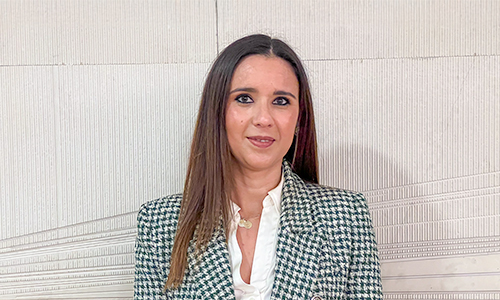Lecturer Sandra Fernandes is part of the “+Sucesso@UPortucalense” project, which began in September last year and is due to end in September next year. During this two-year period, she takes on the coordination of teacher training, organising a training plan totalling 60 hours.
Comunica UPT: What are the motivations behind the creation of Axis 1 “Teacher Training” of the “+Sucesso@UPortucalense” project?
Sandra Fernandes: The main objective is to reinforce the quality of higher education by valuing the teaching staff. This axis is based on three fundamental motivations. Firstly, promoting pedagogical innovation by training teachers to adopt student-centred methodologies, such as project-based learning or flipped classroom. Secondly, valuing the active role of students in their academic career, encouraging skills such as critical thinking, autonomy, and collaboration. Thirdly, encouraging the use of digital technologies and resources in the teaching-learning process, to enhance the involvement and personalisation of learning. In order to do so, a number of initiatives were developed. These included training sessions on active methodologies, information sessions on first year students’ adaptation, seminars and workshops, teacher collaboration projects and communities of practice, as well as the Pedagogical Innovation Good Practices Award.
In terms of training, which areas have been worked on the most and why?
The areas most worked on have been those related to teaching methodologies centred on learning and active student participation, with a strong digital component. Investing in digital training for teachers is strategic, since technology is playing an increasingly important role in higher education, contributing to more flexible, inclusive, and effective teaching practices.
What has been the feedback from lecturers?
Feedback from lecturers has generally been very positive. Participants place special value on the quality of training and its practical applicability in the context of their curricular units. They also emphasise the importance of being able to share experiences with colleagues and the relevance of the topics covered, especially those related to pedagogical innovation and the strategic use of digital tools. This positive response has translated into a high satisfaction rate and a demand for new training courses, contributing to more flexible, inclusive, and effective teaching practices.
How will this axis be evaluated?
Evaluation will be based on data collected from the lecturers who took part in the training sessions. At the end of each training course, the trainees give their feedback on their satisfaction with the training by completing an online questionnaire survey. The trainers also provide an evaluation report on trainee participation, strengths, and suggestions for future improvement. The results of this axis will also be assessed by analysing the content of structural elements of the teaching and learning process, such as the Curricular Unit Files and the publication of teaching materials. Other institutional documents, such as the Individual Teaching Activity Report and the Performance Assessment System, will also be analysed with regard to indicators related to participation in teaching projects.
What are the expected results?
We expect to achieve a set of results that will contribute to a sustained improvement in the quality of teaching at Universidade Portucalense. Firstly, the aim is to strengthen lecturers’ pedagogical skills, with a particular focus on student-centred practices and innovative methodologies. This training should result in a gradual transformation of teaching practices, with a direct impact on the quality of learning. At the same time, we seek to encourage greater collaboration between lecturers, by creating and fostering communities of practice and promoting the sharing of experiences and the joint construction of knowledge. It is also hoped that these pedagogical changes will lead to an increase in student motivation and engagement, thanks to more interactive, personalised, and meaningful learning experiences. This axis also aims to value and recognise the work of lecturers, contributing to an institutional culture geared towards pedagogical excellence and continuous professional development.

